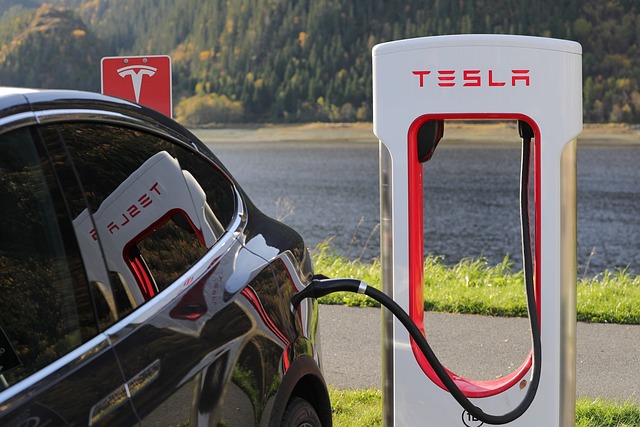
In Part One of this post, we looked at how electric cars are doing. And at the end of a gazillion statistics, our conclusions were that:
- Globally, EVs are selling like hot cakes at a hot cake enthusiasts’ convention.
- Pretty much everywhere you look in the world, EV sales are accelerating.
- Most people who buy one don’t want to swap back to petrol or diesel.
But that doesn’t mean it’s going to be plain sailing for the EV industry, especially in the UK. This time, we’ll look at four of the factors that could slow down the big electric swap over.
1. Pushing back the petrol and diesel car phase-out
On 20th September 2023, Prime Minister Rishi Sunak announced that the ban on selling new petrol and diesel cars would be moved from 2030 to 2035. Undoubtedly, this will have pleased many, but car manufacturers who’d been gearing up for the change were less than happy… except of course for Toyota, who are waiting for the whole EV thing to blow over.
Is this likely to slow EV sales? Well, possibly. As we mentioned in Part One, a recent What Car? survey showed that one-third of EV drivers who said they wouldn’t swap back cited the 2030 ban as a reason. On the other hand:
- If Labour are re-elected in 2025, it looks likely that they will reinstate the 2030 ban.
- Some manufacturers – such as Stellantis – just shrugged and said ‘we’re still going to stop making ICE cars by 2030.’
- Manufacturers must continue to meet an EV quota of 22% of sales by 2024.
Overall, our guess is that the impact will be modest.
2. EV infrastructure is lagging
An intrepid friend of ours has converted an electric van into a camper van. His journeys across the UK are often tales of adventure, battling areas of poor coverage, charging stations that don’t work, cards being refused, and more. His experiences are not unusual. In fact, a 2022 survey by Which? magazine found that three-quarters of EV owners were dissatisfied with the charging network.
What’s more, the efforts to improve coverage are lagging behind. According to The Express:
The latest statistics released by the Department for Transport show that between October 1, 2022, and January 1, 2023, just 26 public electric car charging points were installed on average each day. However, in order for the 300,000 figure [the government’s target number of chargers by 2030] to be met, this number needs to quadruple to 100.
Now, it’s true that many EV drivers aren’t affected that much by infrastructure woes. Given that 84% of EV drivers charge at home, and the average car journey is just eight miles, they don’t have much occasion to use chargers. However, there’s no escaping that the UK charging network is far from mature and fit for purpose. As things stand, it’s probably the number one obstacle to EV adoption.
3. The cost of EVs is still high
Going back a few years, we were moaning a lot about the lack of truly affordable EVs. With a few exceptions – take a bow, Renault Zoe – electric cars were either overpriced hipster-mobiles or luxury barges. Thankfully, that started to change a couple of years ago, when a plethora of more budget EVs hit the UK market. These are now spilling down into the second-hand market, with older EVs becoming much more affordable for ordinary households.
Still, it will be some time before new EVs are anything near price parity. Electric vehicles typically cost thousands more than their ICE counterparts, and even though some of that higher price is offset by lower running costs, it’s a steep hill for plenty of potential owners to climb.
4. EV disinformation
Every time there’s a major change in technology, some people will be in favour of it and some people will be against it. Both sides can be guilty of spinning the facts or just plain making stuff up. However, in the EV information space, anti-EV voices are particularly loud, and media outlets have discovered that they generate massive engagement. That’s encouraging even reputable papers to publish content that goes well beyond the legitimate criticisms of EVs. Citing examples would need a whole separate article. For now, we’ll note that it’s become such an issue that EV enthusiasts Fully Charged are launching a fact-check site to counter the more extreme claims.
When well-known figures like Rowan Atkinson get on board, we figure that the myths and half-truths could deter a percentage of would-be EV drivers at least in the short term. In the longer term, probably not so much. After all, early fears that train travel would cause insanity didn’t hold the railways back for long.
Will any of this stall the EV market in the UK?
OK, here’s a prediction which might turn round to bite us: even when you take all these factors together, EV adoption in the UK is going to go from strength to strength. That’s because the EU and Chinese governments, home to two of the world’s largest car markets, are all-in on electric vehicles. (we’ll wait and see what happens in the US). And so are some of the world’s largest manufacturers that sell to us, including VW Group, Ford and Stellantis. When it comes right down to it, we reckon that the UK’s comparatively piddly car market will go right along with the electric flow.
The WVS blog covers a wide range of automotive topics, from the contentious to the light-hearted. We are an independent garage specialising in the VW group marques, including Audi, Volkswagen, Skoda and SEAT. WVS provides services, repairs and MOTs, delivering a main dealer level of care at affordable prices. To book your vehicle in, or for any enquiries, get in touch.
